PETA's Vital Work
We believe that animals have an intrinsic worth of their own, quite apart from their utility to humans, and should not be treated as commodities. Therefore, PETA’s motto is “Animals are not ours to experiment on, eat, wear, use for entertainment, or abuse in any other way.”
Animals are
Not Ours to Experiment on
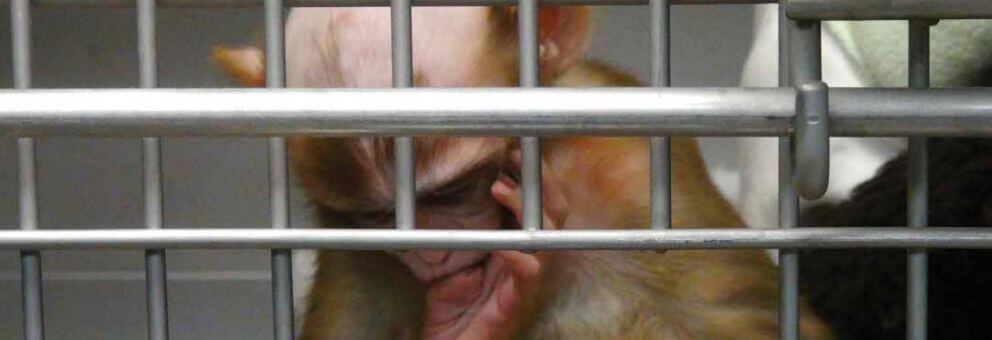
We made a lot of hard-won progress toward ending the use of animals in laboratories. In a groundbreaking move, the National Institutes of Health (NIH) announced that it is moving away from experiments on animals. It has already stopped many, including sepsis experiments on dogs and HIV studies on monkeys, and it will no longer fund the development of animal “models” of disease.
PETA helped suspend a radiation experiment on monkeys at the University of Washington. And NIH canceled funding for Margaret Livingstone’s experiments on baby monkeys.
The University of Massachusetts–Amherst closed its marmoset lab after PETA’s intense four-year campaign exposing cruel menopause experiments on the tiny monkeys.
PETA won a final victory in our longstanding transparency lawsuit against the University of Washington’s Institutional Animal Care and Use Committee.
PETA launched a groundbreaking First Amendment lawsuit to enforce our right to receive communications from primates imprisoned in a government laboratory. They are visibly and audibly expressing their frustration, and we have a right to hear from them.
More companies, governments, and entities are listening to PETA and dropping animal testing. The European Respiratory Society will stop using live animals in medical courses. The Taiwan FDA no longer tells food companies to conduct experiments on animals to make bone and joint health claims. Tokyo-based food company Kewpie Corporation banned all animal testing not required by law. The National Watermelon Promotion Board stopped bankrolling tests on mice and rats. And life sciences company Creative Biolabs nixed the worthless forced swim test.
After PETA exposed cruel animal tests at the University of Wisconsin–Madison’s Food Research Institute, more than a dozen sponsors, including Coke and Pepsi, pulled funds for the tests.
PETA Science Consortium International e.V. cohosted webinars about animal-free toxicity testing, presented at the world’s largest toxicology event, awarded researchers equipment that can replace animals in inhalation tests, and sponsored six scientists from India to train on how to use non-animal methods to test chemicals.
We debuted a new installation, How the Other Half Lives, a 7.5-foot-tall pair of binoculars that juxtaposes macaques living free in the forest with those suffering in laboratories. PETA supporters turned heads at demonstrations, from disrupting UMass events to expose cruel menopause experiments on marmosets to taking over Ethiopian Airlines terminals at the world’s busiest airports to protest the airline’s trafficking of monkeys for experimenters.
Award-winning actor Casey Affleck sent a letter to key Massachusetts legislators urging support for a groundbreaking bill to protect infant monkeys from maternal separation for laboratory experiments.
Animals are
Not Ours to Eat
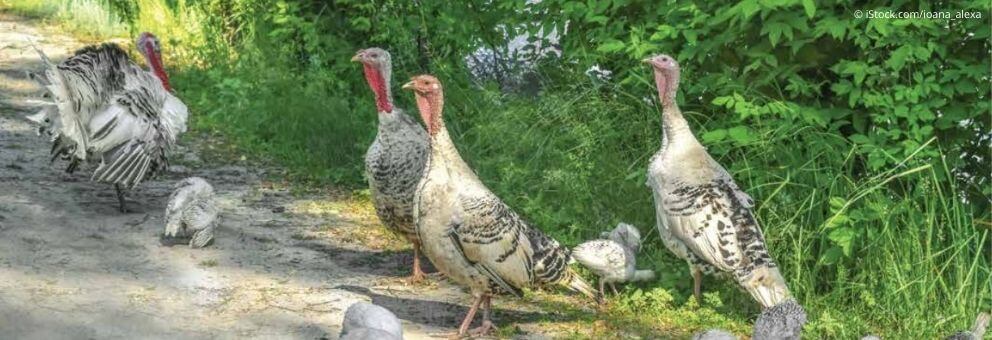
PETA exposes what happens to the billions of animals who are abused and killed in the food industry every year and makes vegan eating easy and popular.
A whistleblower prompted PETA to investigate Oakridge Dairy, which boasts of “Happy Cows.” We found 2,600 cows suffering inside a mega-shed and never allowed outside. Another meat industry veteran helped PETA expose alleged abusive handling and botched killings of chickens at an “animal welfare certified” Virginia slaughterhouse.
We exposed the meaninglessness of “organic” labels for animals by publishing records about cows who were confined in manure and died at an organic dairy in Texas.
PETA prompted criminal investigations of slaughterhouse workers for kicking ailing pigs in Vermont, cutting the throats of conscious cows in Tennessee and Georgia, and throwing a chicken against a wall in Virginia.
We exposed slaughterhouse workers who kicked a sheep in the face, slashed a conscious pig’s throat, and shot animals in the head. When more than 3,000 chickens died of exposure to the cold en route to slaughter in South Carolina, we got it on the news.
PETA advanced our campaign against upcharges for vegan milk. Following Starbucks’ decision to drop the upcharge, Busboys and Poets, Dunkin’, Dutch Bros, Peet’s Coffee, Scooter’s Coffee, and Tim Hortons all followed suit.
A PETA Asia exposé added to our campaign to help enslaved monkeys in Thailand. New footage of monkey “schools” revealed how baby pig-tailed macaque monkeys are tethered for years on short chains so they can be forcibly trained to pick coconuts. Our campaign persuaded A Taste of Thai to stop sourcing coconuts picked by monkeys. We collaborated with Mike White, the creator of HBO’s The White Lotus, who shot the most recent season in Thailand, to urge the country’s new prime minister to ban monkey labor.
We launched our Hell on Wheels turkey truck tour before Thanksgiving. It stopped in cities across the country before rolling into Washington, D.C., where thousands were gathered for the annual “pardoning” of two turkeys.
As egg prices rose, PETA sent “Tommy Tofu” and Commando Chicks to cities across the South to hand out vegan egg sandwiches. PETA supporters took action in solidarity with mother cows at the “Every Woman’s Marathon,” a dairy industry promotional event. We also sent a manure-filled dump truck to the ASPCA’s headquarters to raise a stink over the organization’s support for factory farms and humane washing.
Many PETA friends—including Joan Jett, Masta Killa, Heather Ray El Moussa, and Florencia Torrente, helped draw attention to the suffering of animals killed for food.
Animals are
Not Ours to Wear
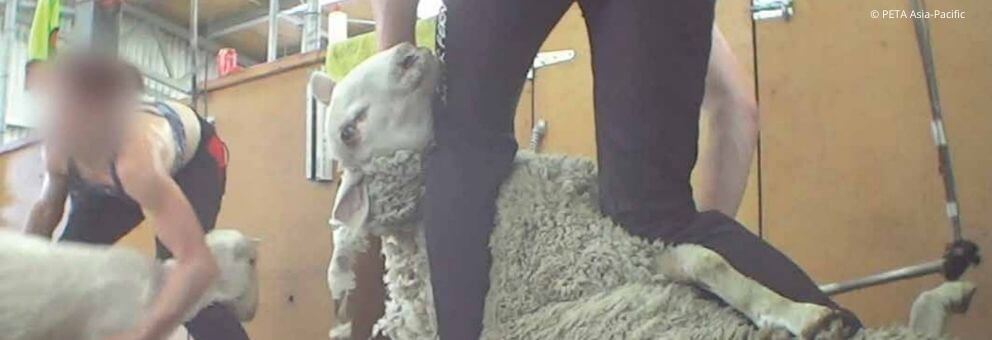
Animals’ skin belongs to them, not us. PETA pushes society to evolve past reducing living, feeling beings to sweaters, watchbands, and shoes.
In 2025, our work moved retail giant SHEIN to add third-party sellers to its company-wide ban on fur and wild-animal skins. Clothing and lifestyle brand October’s Very Own agreed to stop selling fur, as did department store chain Von Maur. Vogue finally stopped promoting fur in its pages. Mohair and cashmere won’t be seen at popular mall retailer Zumiez after talks with PETA, and Tailored Brands—which owns Men’s Wearhouse— agreed to stop selling shoes made from alligator, ostrich, or any other wild animal.
We urged the NFL to switch to synthetic balls after our undercover investigation filmed at a slaughterhouse that supplies leather for Wilson’s official NFL footballs revealed terrified cows watching and trying to escape as others are being shot in the back of the head and dismembered in front of them—all in violation of industry and veterinary guidelines.
We worked with PETA Asia-Pacific to investigate 11 New Zealand farms that produce ZQ-certified wool, which is sold to brands like Allbirds and Smartwool. The exposé showed shearers kicking and stomping on sheep, workers hitting sheep with objects, including a ski pole, and sheep left with gaping wounds.
We settled our First Amendment lawsuit alleging Southwest Wyoming Regional Airport created an unconstitutionally vague policy to stop PETA from running an ad encouraging travelers to choose vegan luggage. Our ad was up and running in time for Memorial Day!
We named Victoria’s Secret PETA’s 2024 Company of the Year for using fabulously creative feather-free wings in its fall fashion show, after previously using 620,000 feathers from ostriches, pheasants, and chickens. Stella McCartney earned PETA’s 2024 Person of the Year Award for rejecting the use of animal skins, fur, and feathers.
Ahead of Black Friday, we launched “Free the Animals” Friday, with more than 30 demonstrations around the world drawing attention to the suffering of billions of animals killed for leather and other animal-derived clothing.
Our robo-calf, Charli XC Cow, made appearances in Las Vegas, New York, Salt Lake City, and other cities to spread one bold message: Wear your own skin, and let cows keep theirs! Charli earned lots of looks from passersby as well as media attention nationwide, including a shoutout from Stephen Colbert!
We thank Caylee Cowan, Torrey DeVitto, Dulce María, and Sofía Sisniega, who helped PETA inform millions about the cruelty hiding in animal-derived materials.
Animals are
Not Ours to Use for Entertainment
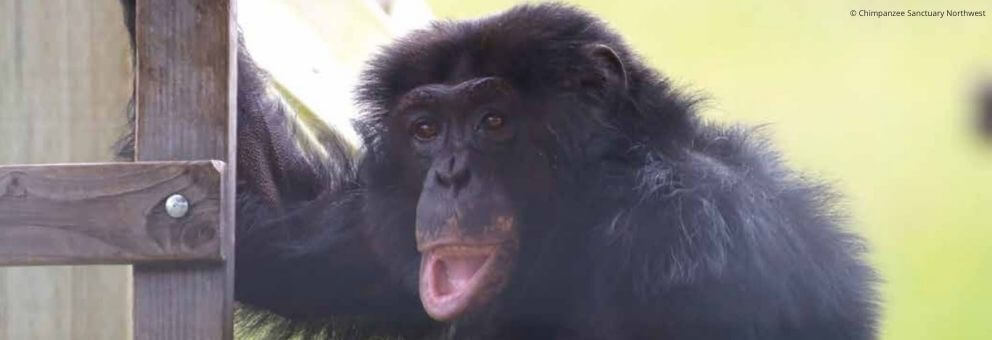
PETA’s vigorous campaigns to end the use of animals for entertainment were in full force in 2025.
After PETA presented evidence to the California Horse Racing Board that its rule against licensed jockeys participating in unsanctioned racing was not being enforced, the Board conducted its own investigation and filed a complaint against prominent jockey Jose Nicasio. Fasig-Tipton is banning the practice of whipping and forcing young horses to sprint short distances at its 2026 2-year-old Thoroughbred auction, after years of PETA pressure.
After years of PETA activism, SeaQuest filed for bankruptcy and the Miami Seaquarium closed its doors for good. SeaWorld continues to lose partners, including Colombina candy company, which chose not to renew its event sponsorship with the abusement park. And PETA Latino members helped permanently close the Dophinarium at Barceló Maya Grand Resort.
Our work helped end the exploitation of, and we are helping support the lifetime care of, Limbani, a chimpanzee who was kept in solitary confinement for eight years by Tiger King villain Mario Tabraue. PETA’s work also helped free over 300 animals from West Coast Game Park Safari in Oregon—including George, the last solitary chimpanzee left in a U.S. roadside zoo!
Tonia Haddix, who hid Tonka the chimpanzee in a tiny cage and lied about his death, was sentenced to nearly four years in prison for perjury and obstruction of justice. Tonka is enjoying life at the Save the Chimps sanctuary!
Mysterious Circus went animal-free after PETA supporters spoke up for Okha, an elephant who was taken from her natural home in the 1970s and forced to perform ever since. PETA helped stop the Colorado Renaissance Festival from hosting elephant exhibitor Trunks & Humps. PETA also reached more than a million parents with ads encouraging families to stay away from cruel shows.
After hearing from PETA, Carnival Corporation—the largest cruise line in the world—will no longer offer excursions to places that force captive elephants to be ridden or bathed by visitors. Discover Corps stopped offering elephant-bathing opportunities. Shore Excursions Group, Timbuktu Travel, and ToursByLocals removed all tours offering camel rides at the Giza pyramids, joining travel giants Airbnb and Marriott.
At the deadly Iditarod in Alaska, PETA protesters set up a dog graveyard honoring three dogs who had died on the trail last year. We quickly exposed this year’s race for trying to hide a dog’s medical emergency and racing a pregnant dog to death.
We helped get bullfighting effectively outlawed in Mexico City and banned in Michoacán, and PETA supporters gathered outside Catholic churches to ask the Vatican to condemn bullfighting.
We thank Alec Baldwin, Fernanda Castillo, Noah Cyrus, Scarlet Gruber, Lala Kent, Sir Paul McCartney, Nella, and Aoki Lee Simmons for their help with these campaigns.
Animals are
Not Ours to Abuse in Any Other Way
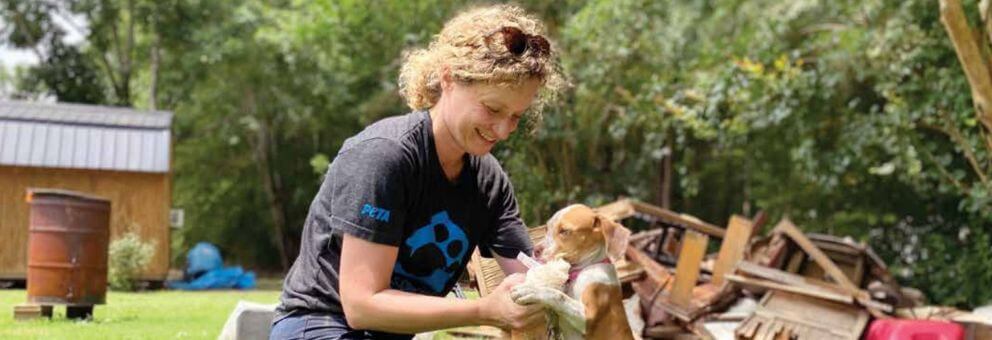
PETA stops all kinds of cruelty to animals and eases their suffering when they need help.
When PETA learned that a police K-9 handler had punched the dog repeatedly during a traffic stop, we filed a lawsuit to obtain more information—and got the dog retired and adopted into a loving family. PETA also intervened for Sonic, a K-9 in Nebraska who suffered for months in isolation after his original handler retired. We helped get Sonic retired from duty and reunited with his original handler and family.
In a huge, historic victory for snakes in Colorado, after a push from PETA and other animal allies, the Colorado Department of Agriculture will require licensed facilities to house snakes in enclosures that provide enough space for them to fully extend their bodies, which scientific studies show is necessary for their health.
After PETA fieldworkers found Honey Bun emaciated, struggling to breathe, and unable to stand or walk, the man who had left the dog to starve was banned from owning animals for five years and placed on supervised probation. We ensured that an Emporia, Virginia, woman was charged with animal neglect after PETA fieldworkers discovered a dog with extreme mange tethered outside. Authorities allowed PETA to gain custody of the dog, and after receiving months of care, the dog, now named Cooper, is thriving in his new home.
Our Mobile Clinics Division traveled to Halifax County, Virginia, to spay and neuter 245 dogs and cats! Another 161 dogs and cats were sterilized at an event in Gloucester, Virginia, thanks to three generous PETA employees.
PETA’s Emergency Response Team is on call 24/7, and it’s the only group that offers cruelty casework help all over the world. This is just a small sample of the team’s work: It procured the seizure of more than 300 rats from filthy cages in Canton, Ohio; persuaded officials to rescue a violently abused puppy in Sugar Land, Texas; and arranged transport and shelter for an ill stray cat who was being abused by a group of children in Mazar-i-Sharif, Afghanistan.
After help from PETA and other animal advocates, West Hollywood City Council unanimously voted to ban the sale of all animals in pet stores, and Ojai, California, become the first city in the country to ban “torture breeding”—deliberately breeding animals to have deformed bodies and extreme features that cause them a lifetime of suffering. In San Bernardino, California, PETA sent breathing-impaired “French bulldogs” hooked up to oxygen tanks to the OnlyFrenchies convention.
We received help with our anti-cruelty campaigns from Tim Burton, Craig Conant, Valentina de Abreu, Alex de la Madrid, Sasha Farber, Yung Gravy, Tobin Heath, Dylan McDermott, Clarissa Molina, Paola Nuñez, Ron Perlman, Christen Press, Sie7e, and Jalen Smith.
Animal Rights:
The Next Generation
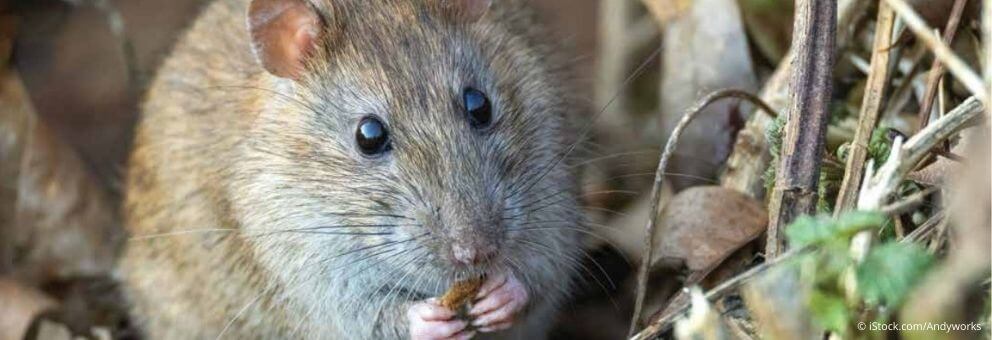
PETA’s youth divisions are empowering young people with the knowledge and tools they need to change the future for animals.
Our innovative youth program, peta2, launched its Street Team to mobilize young volunteers at music festivals and outreach events across the country. Our Abduction virtual reality, empathy-building experience spent 18 weeks on the road, reaching over 1,600 students on 18 campuses, transporting them into the lives of animals used for experiments. We also debuted When They Came for Us, an immersive AI experience that forces students to confront the realities of animal exploitation from a new perspective. The tour reached nearly 700 students over its first 10 weeks.
With a message of “compassion over cruelty,” peta2 went on a month-long, 18-city tour with nothing, nowhere. Over 2,400 concert attendees texted into our campaign. We also hit the road with Mayday Parade on their nationwide tour, during which 4,400 fans texted into our anti-SeaWorld campaign. peta2 also reached people at Warped Tour, Riot Fest, All Things Go, and more.
Between all of the college and music tours, peta2 distributed over 100,000 literature items.
It was a busy school year for PETA’s humane education division, TeachKind. Since launching the silicone dissection model Kind Frog in 2024, TeachKind Science has donated over 15,000 to teachers, sparing thousands of animals from the dissection tray and giving students a kinder way to learn. We also presented to 200 teachers at the Nevada Association for School Administrators virtual winter conference. As a result of this conference, our animatronic Ellie the Elephant team spent a record NINE weeks in Las Vegas giving presentations. Ellie and TeachKind’s “cowbassador” Carly the Cow presented to more than 35,000 students nationwide this year.
TeachKind’s materials have been used to reach an estimated 1 million students on a popular website for teachers, TPT. To reach more educators than ever before, TeachKind launched its own website, TeachKind.org.
PETA Kids is releasing animated videos featuring interesting facts about animals like chickens and rats. Our video about chickens has already received more than 200,000 views.
PETA Kids awarded the All-Star for Animals Award to 12-year-old Lionel Burton for his activism and compassion for animals. To celebrate Lionel’s win, PETA’s vegan ice cream truck made a special visit to his school and treated over a thousand students and staff to dairy-free desserts.
Bands nothing,nowhere., Sace 6, and Diva Bleach helped raise awareness of our campaigns through interviews and ads.
PETA's
Global Compassion Fund
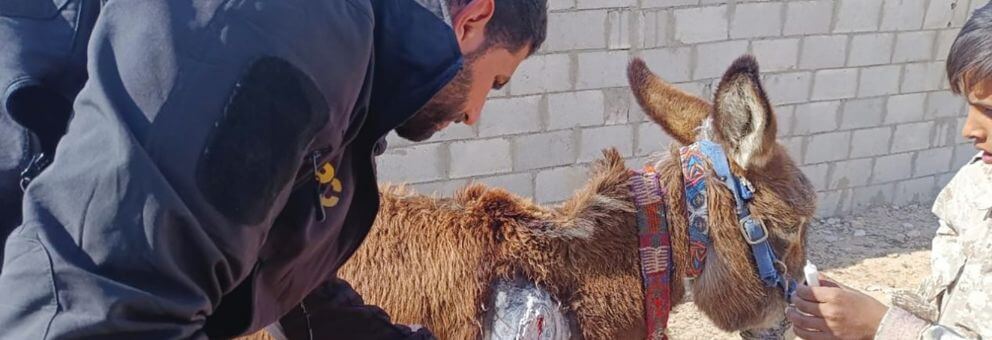
PETA’s Global Compassion Fund helps groups provide animals in dire situations around the world with vital resources.
This year, in war-torn Ukraine, PETA’s Global Compassion Fund helped rescue nearly 30,000 donkeys, dogs, cats, horses, goats, pigs, ducks, rabbits, and chickens and provided monthly food deliveries to feed around 2,500 hungry animals each day. A drone defense system—financed by PETA’s Global Compassion Fund—helped protect a van full of rescued animals from a spray of bullets.
PETA’s Global Compassion Fund supported the rescue of animals in critical situations:
- PETA supported the rescue of seven camels in Baramulla, India, who were reportedly being sold for sacrifice ahead of Eid.
- When a sick and injured puppy named Carla was abandoned in freezing temperatures outside a small village in Romania, a PETA-supported rescue team got her the help she needed.
- Promise, a homeless dog in the Philippines, got a second chance at a safe life with a loving family, thanks to the Global Compassion Fund.
PETA entities are running robust spay/neuter programs around the world:
- Clinics supported by the Global Compassion Fund spayed and neutered more than 300 dogs and cats in Peru.
- In Mexico, we sterilized more than 1,000 animals free of charge, including Baja, a tiny Chihuahua who had been seized from a neglectful owner. Little Baja was brought to the U.S. for adoption.
- We held clinics in Puerto Rico, where we spayed and neutered more than 250 dogs and cats.
- PETA Asia helped spay and neuter thousands of cats and dogs this year—sometimes as many as 600 animals during a single clinic!
PETA India and PETA-supported Animal Rahat continue to rescue dogs, cats, cows, bullocks, camels, horses, donkeys, goats, monkeys, and other animals from desperate circumstances. This year, to help families who depend on animals for their livelihoods see animals as individuals and understand their unique needs, Animal Rahat’s Sangli sanctuary hosted its first all-female visitors’ day. Women groomed bullocks, horses, and camels and saw them living as they should: free of tight tethers, socializing with their friends, and enjoying plenty of food and water.
